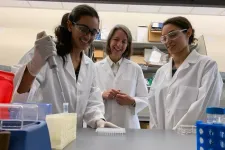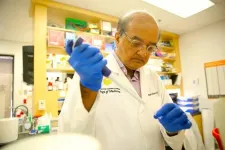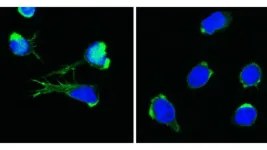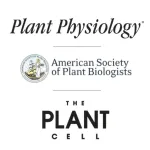(Press-News.org) The National Academy of Medicine (NAM) is partnering with a group of leading health, bioethics, equity, tech, patient advocacy, and research organizations, including The Hastings Center, to develop an Artificial Intelligence Code of Conduct (AICC).
Dr. Vardit Ravitsky, incoming president of The Hastings Center, who will serve on the steering committee, said, “we must urgently develop guidance for the ethical use of AI – perhaps the most transformative technology of our generation.” Ravitsky is also a Principal Investigator on two Bridge2AIresearch projects funded by the National Institutes of Health that expand the use of AI in biomedical and behavioral research.
Commenting on the AICC, the NAM’s Dr. Michael McGinnis said: “Involving these accomplished national leaders from across the U.S. is essential for creation of a harmonized, broadly adopted AI Code of Conduct, as well as for development of the national architecture that promotes the equitable and responsible use of AI. This collaborative effort will help ensure that the application of health AI is based on the best science, and is consistent with ethical principles and societal values in pursuit of effectiveness, efficiency, and equity for all members of society.”
Stewarded by the NAM Leadership Consortium (LC), as AI is poised for a profound impact throughout the health field, the effort is a direct response to the growing call for a harmonized set of AI guidelines that can facilitate interoperable governance standards for its development and application. The NAM AI Code of Conduct initiative will draw from and build upon related work, including pathbreaking efforts of the Coalition for Health AI (CHAI). In this respect, it will aim to clarify roles and responsibilities of the many stakeholders on issues of privacy, ethics, equity, accountability, and applicability, at each stage of the AI lifecycle. The Code of Conduct will represent a “best practice” framework, subject to testing, validation, and improvement as the technology and the ability to effectively govern it progresses.
Under the strategic guidance of a multi-faceted AICC Steering Committee—comprised of ethics and equity experts, care delivery systems, tech companies, patient advocates, researchers, and payers—the NAM project will describe a national strategy for broad adoption of the harmonized Code of Conduct and describe a national architecture and priority actions to support and advance responsible AI in health, medical care, and health research.
The NAM AI Code of Conduct initiative will be developed with significant stakeholder and public input—an open process from the outset. NAM will organize informational gatherings and collaborative events and activities which will be used to inform the Code of Conduct. The goal is that the Code and national health care AI architecture be widely adopted, translated for implementation by various stakeholders, and continuously improved to realize AI’s enormous promise.
The Hastings Center is a global leader in ethics research, and as an independent organization, it pursues society’s most controversial ethical issues at the intersection of health, science, and technology. Center research scholars explore pressing, timely issues related to two broad themes: just and compassionate care for people of all ages and wise use of emerging technologies.
For more information on the project, please visit: https://nam.edu/programs/value-science-driven-health-care/health-care-artificial-intelligence-code-of-conduct
For more information on the Bridge2AI program, please visit: https://commonfund.nih.gov/bridge2ai
Contact Mark Cardwell or Susan Gilbert at:
communications@thehastingscenter.org
END
Hastings Center partners on AI project led by national academies
2023-06-21
ELSE PRESS RELEASES FROM THIS DATE:
CSU biologists document genome-level climate adaptation in endangered bird species
2023-06-21
As the climate changes, living things must adapt to new environmental conditions in one of two ways – either geographically or genetically. While it’s relatively simple for scientists to track and record a species’ geographic movements, proving their genetic adaptation over time can be much more difficult.
A new study led by Colorado State University researchers in Nature Climate Change is one of the first to document climate adaptation at the genomic level in a wild population. Specifically, the Southwestern Willow Flycatcher – an endangered migratory bird – has shown an increase in genetic variation ...
DNA test could broaden access to cervical cancer screening
2023-06-21
HOUSTON – (June 21, 2023) – Rice University bioengineers have demonstrated a low-cost, point-of-care DNA test for HPV infections that could make cervical cancer screening more accessible in low- and middle-income countries where the disease kills more than 300,000 women each year.
HPV, a family of viruses, infects nearly everyone at some point in their lives, often without symptoms. But more than a dozen types of HPV can cause persistent infections that result in cervical cancer, which is preventable and curable ...
Cancer drugs show potential in fight against malaria
2023-06-21
With malaria becoming increasingly drug-resistant, a team of UCF researchers is looking to use cancer drugs to accelerate the discovery of new life-saving therapies for the disease.
In a study funded by a 5-year $3.8 million grant from the National Institutes of Health, UCF molecular parasitologist Debopam Chakrabarti and cancer molecular biologist Ratna Chakrabarti are partnering with Nathanael Gray, co-leader of the cancer therapeutics research program at Stanford University and Elizabeth Winzeler, a malaria drug development expert from the University of California San Diego, to test cancer drugs for malaria-fighting ...
Newly discovered genetic defect disrupts blood formation and immune system
2023-06-21
(Vienna, 21.06.2023) In the quest to find the origin of the puzzling symptoms in four children, researchers from St. Anna Children's Cancer Research Institute, the CeMM Research Center for Molecular Medicine of the Austrian Academy of Sciences (ÖAW), and the Medical University of Vienna have discovered a completely new disease, linking disruptions of blood formation, the immune system, and inflammation. This groundbreaking discovery provides the basis for a better understanding of similar diseases. It is a milestone that the researchers have now published ...
New study reveals number and strength of head impacts, not concussions, drive CTE risk in football
2023-06-21
Does a football player’s number of concussions drive the risk of developing chronic traumatic encephalopathy (CTE)? In a new study of 631 deceased football players, the largest CTE study to date, scientists found that the number of diagnosed concussions alone was not associated with CTE risk. Instead, football players’ odds of developing CTE were related to both how many head impacts they received and how hard the head impacts were.
The study, conducted by researchers at Mass General Brigham, Harvard Medical School, and Boston University (BU), was published today in Nature Communications. It ...
ASPB Journals launch Author Travel Awards
2023-06-21
ROCKVILLE, MD - Authors whose work has been published in Plant Physiology or The Plant Cell, leading international society journals published by the American Society of Plant Biologists (ASPB), have a new option to support their travel to share their research with the scientific community. Funded by Plant Physiology and The Plant Cell, US$1,000 travel awards will be awarded to authors who have received invitations to give an oral presentation at any conference or scientific meeting around the world. Five US$1,000 awards are available in 2023 with more awards anticipated for 2024 ...
Scientists discover mechanism affecting heart development in Down syndrome
2023-06-21
Infants born with Down syndrome, the genetic condition caused by an extra copy of chromosome 21, or trisomy 21, are highly predisposed to congenital heart defects. It is estimated that nearly half of newborns with Down syndrome have a congenital heart malformation, and Down syndrome is recognized as the most common cause of congenital heart abnormalities. Despite many research efforts over several decades, the mechanisms by which trisomy 21 prevents proper formation of the heart during embryonic development have remained unknown.
A recent study by scientists ...
Combining twistronics with spintronics could be the next giant leap in quantum electronics
2023-06-21
Twistronics isn’t a new dance move, exercise equipment, or new music fad. No, it’s much cooler than any of that. It is an exciting new development in quantum physics and material science where van der Waals materials are stacked on top of each other in layers, like sheets of paper in a ream that can easily twist and rotate while remaining flat, and quantum physicists have used these stacks to discover intriguing quantum phenomena.
Adding the concept of quantum spin with twisted double bilayers of an antiferromagnet, it is possible to have tunable moiré magnetism. This suggests a new class of material platform for the next step in twistronics: ...
Omega-3 fatty acids linked to slower decline in ALS
2023-06-21
EMBARGOED FOR RELEASE UNTIL 4 P.M. ET, WEDNESDAY, JUNE 21, 2023
MINNEAPOLIS - People with amyotrophic lateral sclerosis (ALS) who eat more foods high in certain omega-3 fatty acids like flaxseed oil, walnuts, canola oil and pumpkin seeds may have a slower physical decline from the disease and may have a slightly extended survival. The study, which looked at the survival of people with ALS over the course of 18 months, was published in the June 21, 2023, online issue of Neurology®, the medical journal of the American Academy of Neurology. Researchers also found an omega-6 ...
Is TBI a chronic condition?
2023-06-21
EMBARGOED FOR RELEASE UNTIL 4 P.M. ET, WEDNESDAY, JUNE 21, 2023
MINNEAPOLIS – People with TBI may continue to improve or decline years after their injury, making it a more chronic illness, according to a study published in the June 21, 2023, online issue of Neurology®, the medical journal of the American Academy of Neurology.
“Our results dispute the notion that TBI is a one-time event with a stagnant outcome after a short period of recovery,” said study author Benjamin L. Brett, PhD, of the Medical College ...



